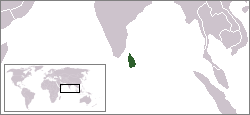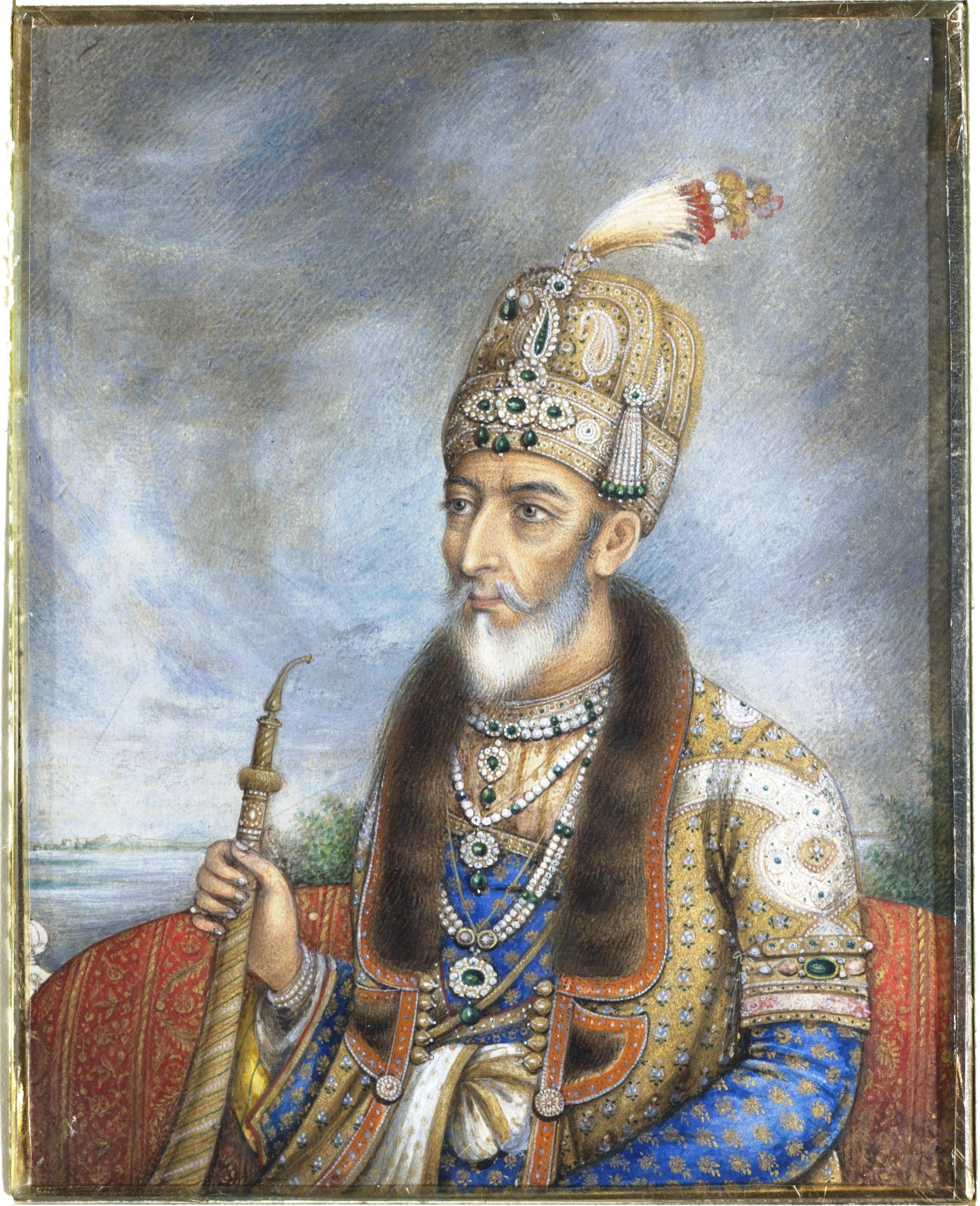|
A. E. Goonesinha
Alexander Ekanayaka Goonesingha (1 May 1891 – 1 August 1967) was a Sri Lankan trade unionist and politician. A pioneering trade union leader, known as the "Father of the Labour Movement", he was the founder of the Ceylon Labour Party, Sri Lanka's first labour organisation. A former mayor of Colombo, he served as the Minister without portfolio, Minister of State and Chief Government Whip in the First Parliament of Sri Lanka and Ceylon's Ambassador to Burma and Indonesia. Early life A. E. Gunasinha was born 1 May 1891 in Kandy as the son of a tea estate superintendent, George Ekanayake Gunasinha. He first attended Dharmaraja College and completed his education at St. Joseph's College, Colombo and Wesley College, Colombo. Upon completion of his studies, he sought employment as a clerk in the Ceylon railway department, but later turned his attention to journalism. He was prominent in forming the "Young Lanka League" on 2 March 1915 along with barrister C. H. Z. Fernando, ... [...More Info...] [...Related Items...] OR: [Wikipedia] [Google] [Baidu] |
The Honourable
''The Honourable'' (Commonwealth English) or ''The Honorable'' (American English; American and British English spelling differences#-our, -or, see spelling differences) (abbreviation: ''Hon.'', ''Hon'ble'', or variations) is an honorific Style (manner of address), style that is used as a prefix before the names or titles of certain people, usually with official governmental or diplomatic positions. Use by governments International diplomacy In international diplomatic relations, representatives of foreign states are often styled as ''The Honourable''. Deputy chiefs of mission, , consuls-general, consuls and honorary consuls are always given the style. All heads of consular posts, whether they are honorary or career postholders, are accorded the style according to the State Department of the United States. However, the style ''Excellency'' instead of ''The Honourable'' is used for ambassadors and high commissioners only. Africa Democratic Republic of the Congo In the Democrati ... [...More Info...] [...Related Items...] OR: [Wikipedia] [Google] [Baidu] |
Anagarika Dharmapala
Anagārika Dharmapāla (Pali: ''Anagārika'', ; Sinhala: Anagārika, lit., ; 17 September 1864 – 29 April 1933) was a Sri Lankan Buddhist revivalist and a writer. Anagarika Dharmapāla is noted because he was: * the first global Buddhist missionary * one of the founding contributors of non-violent Sinhalese Buddhist nationalism * a leading figure in the Sri Lankan independence movement against British rule * a pioneer in the revival of Buddhism in India after it had been virtually extinct for several centuries * the first Buddhist in modern times to preach the Dhamma in three continents: Asia, North America, and Europe. * kept a close and cordial relationship with Ven. Kripasaran, a pioneer in the revival of Buddhism in Bengal and India Along with Henry Steel Olcott and Helena Blavatsky, the creators of the Theosophical Society, he was a major reformer and revivalist of Sinhala Buddhism and an important figure in its western transmission. He also inspired a mass movemen ... [...More Info...] [...Related Items...] OR: [Wikipedia] [Google] [Baidu] |
Martial Law
Martial law is the replacement of civilian government by military rule and the suspension of civilian legal processes for military powers. Martial law can continue for a specified amount of time, or indefinitely, and standard civil liberties may be suspended for as long as martial law continues. Most often, martial law is declared in times of war or emergencies such as civil unrest and natural disasters. Alternatively, martial law may be declared in instances of Coup d'état, military coups d'état. Overview Despite the fact that it has been declared frequently throughout history, martial law is still often described as largely elusive as a legal entity. References to martial law date back to 1628 England, when Matthew Hale (jurist), Sir Matthew Hale described martial law as, "no Law, but something indulged rather than allowed as a Law." Despite being centuries old, this quote remains true in many countries around the world today. Most often, the implementation of martial l ... [...More Info...] [...Related Items...] OR: [Wikipedia] [Google] [Baidu] |
Henry Pedris
Duenuge Edward Henry Pedris (; 16 August 1888 – 7 July 1915) was a Ceylonese militia officer and a prominent socialite. Pedris was executed for treason by the 17th Punjab Regiment of the British Indian Army under martial law during the 1915 Sinhalese-Muslim riots. Convicted in a three day Field General Court Martial under the terms of the Army Act, bypassing the local legal system, his execution was viewed as unjust by the local population and a warning to local leaders. It hastened the movement toward independence, providing motivation and a martyr for those who pioneered the movement. On 12 September 2024, the President of Sri Lanka posthumously pardoned Henry Pedris. Early life Henry Pedris was born in Galle in the southern part of Ceylon, as the youngest of five children and the only son of Duenuge Disan Pedris and Mallino Fernando Pedris, daughter of Peace Officer Margris Fernando of Karandeniya. Both his father and uncle N. S. Fernando Wijesekara were leading b ... [...More Info...] [...Related Items...] OR: [Wikipedia] [Google] [Baidu] |
Charles Alwis Hewavitharana
Charles Alwis Hewavitharana, FRCS, LRCP was a Ceylonese (Sinhalese) physician who played a significant role in Sri Lanka's Independence and Buddhist Revival movements. He was the brother of Anagarika Dharmapala. Early life He was born in Colombo, Ceylon, to Don Carolis Hewavitharana and Mallika Dharmagoonewardena the daughter of Lansige Lansige Andiris Perera Dharmagunawardhana, a wealthy businessman. His other siblings were Don David Hewavitharana who later changed his name to Anagarika Dharmapala and became a prominent figure in the Buddhist revival movement in Ceylon and in India; Edmund Hewavitharana; Simon Alexander Hewavitharana and Dona Engeltina née Moonesinghe. Education Charles Hewavitharana was educated at Colombo Academy and at the Ceylon Medical College. After graduating he joined the Ceylon Medical Service left for Britain for further studies gaining a LRCP (London) and FRCS. Although working as a physician he became an active independence activist working ... [...More Info...] [...Related Items...] OR: [Wikipedia] [Google] [Baidu] |
Don Baron Jayatilaka
Sir Don Baron Jayatilaka, KBE ( Sinhala:ශ්රීමත් දොන් බාරොන් ජයතිලක; 13 February 1868 – 29 May 1944) known as ''D.B. Jayatilaka'' was a Sri Lankan Sinhalese educationalist, statesmen and diplomat. He was Vice-President of the Legislative Council of Ceylon; the Minister for Home Affairs and Leader of the House of the State Council of Ceylon; and Representative of Government of Ceylon in New Delhi. Sir D. B. Jayatilaka is also considered as a flag bearer of Buddhist education in Sri Lanka. Early life Born at Waragoda, Kelaniya, he was the eldest male child of ickremaratchi Imia Rajakaruna Liyana Atukoralage Don Daniel Jayatilaka Senanayake Liyana Aratchi of Pattalagedera, Veyangoda, a government servant, and his wife Liyanage Dona Elisiana Perera Weerasinghe, daughter of oriental scholar, Don Andiris de Silva Batuwantudawe of Werahena, Bentota. He had two brothers, and two sisters, both of whom died young. Education When he w ... [...More Info...] [...Related Items...] OR: [Wikipedia] [Google] [Baidu] |
Riots In Sri Lanka
Following is a list of riots and protests in Sri Lanka, an island nation situated in South Asia. Throughout its history, Sri Lanka has experienced a number of riots. Since 1915, many of them have stemmed from ethnic tensions between the Sinhalese majority and minority Tamil and Moor populations. 19th century * 1883 Kotahena riots (Kotahena, Western Province) − Riots erupt once Buddhists who were proceeding in procession to Deepaduttarama Viharaya at Kotahena are attacked by a group of Roman Catholics. 20th century 1915 * 1915 Ceylonese riots (Kandy, Central Province) − Riots between Sinhalese and Sri Lankan Moors erupt after a group of Moors attack a Buddhist pageant with stones. Riots soon spread across the entire island. 1950s * 1953 Ceylonese Hartal − a nationwide demonstration, a hartal which eventually led to civil unrest. It was one of the riots which did not involve ethnicity and was conducted by several leftist groups. * 1956 anti-Tamil pogrom ( Eastern Pr ... [...More Info...] [...Related Items...] OR: [Wikipedia] [Google] [Baidu] |
Indian Independence Movement
The Indian independence movement was a series of historic events in South Asia with the ultimate aim of ending British Raj, British colonial rule. It lasted until 1947, when the Indian Independence Act 1947 was passed. The first nationalistic movement took root in the newly formed Indian National Congress with prominent moderate leaders seeking the right to appear for Indian Civil Service examinations in British India, as well as more economic rights for natives. The first half of the 20th century saw a more radical approach towards self-rule. The stages of the independence struggle in the 1920s were characterised by the leadership of Mahatma Gandhi and Congress's adoption of Gandhi's policy of non-violence and Salt March, civil disobedience. Some of the leading followers of Gandhi's ideology were Jawaharlal Nehru, Vallabhbhai Patel, Abdul Ghaffar Khan, Maulana Azad, and others. Intellectuals such as Rabindranath Tagore, Subramania Bharati, and Bankim Chandra Chattopadhyay spr ... [...More Info...] [...Related Items...] OR: [Wikipedia] [Google] [Baidu] |
Colonialism
Colonialism is the control of another territory, natural resources and people by a foreign group. Colonizers control the political and tribal power of the colonised territory. While frequently an Imperialism, imperialist project, colonialism can also take the form of settler colonialism, whereby settlers from one or multiple colonizing metropoles occupy a territory with the intention of partially or completely supplanting the existing population. Colonialism developed as a concept describing European colonial empires of the modern era, which spread globally from the 15th century to the mid-20th century, spanning 35% of Earth's land by 1800 and peaking at 84% by the beginning of World War I. European colonialism employed mercantilism and Chartered company, chartered companies, and established Coloniality of power, coloniality, which keeps the colonized socio-economically Other (philosophy), othered and Subaltern (postcolonialism), subaltern through modern biopolitics of Heterono ... [...More Info...] [...Related Items...] OR: [Wikipedia] [Google] [Baidu] |
Chilaw
Chilaw (, ) is a city in Puttalam District, North Western Province, Sri Lanka. It is governed by an urban council, whereas the outskirts are governed by a pradeshiya sabha of the same name. The town is located 80 kilometers away from Colombo via Negombo. Religious composition in Chilaw DS Division according to 2012 census data is as follows Roman Catholics 28,544-45.66%, Buddhists 22,855-36.56%, Muslims 5,205-8.33%, Hindus 4,288-6.86%, Other Christians 1,609-2.57%, Others 14-0.02%. Etymology Halāwatha(හලාවත), probably from 'Halawathara' or 'Salwathota' in Old Sinhala. According to the historical records, Cholas landed in 'Salawattota' in 1190 A.D. Thus the basic name existed ancient times as well. Sal(සල්), Sāla (in Pali) may refer to ' Sal trees' The visit of Mahatma Gandhi Mahathma Gandhi, the 'Father of India,' who has actually visited Chilaw on November 1927 on his first and only journey to Sri Lanka when it was called Ceylon. This was a historic vi ... [...More Info...] [...Related Items...] OR: [Wikipedia] [Google] [Baidu] |
Victor Corea
Charles Edward Victor Seneviratne Corea (born 29 January 1871 – 6 June 1962) was a Sri Lankan lawyer, legislator, politician, civil rights activist, and anti-colonial nationalist. As a lawyer, Corea was an Advocate of the Supreme Court of Sri Lanka and unofficial member of the Legislative Council of Ceylon. As a politician, he was a founding member of the Ceylon National Congress, the Founding President of the Ceylon Labour Union, and an executive member of Ceylon Labour Party, all parties focused on promoting Sri Lankan independence amidst British colonial rule in Ceylon. He is widely credited for resisting the Poll Tax in Ceylon (Sri Lanka). Corea is a descendant of King Dominicus Corea of Kotte. Early life Charles Edward Victor Seneviratne Corea was born on 29 January 1871 into a Sinhala family of Anglican faith in Chilaw, Sri Lanka. His father, Charles Edward Bandaranaike Corea, was similarly a lawyer and a Proctor of the Supreme Court of Sri Lanka. Corea was the ... [...More Info...] [...Related Items...] OR: [Wikipedia] [Google] [Baidu] |







